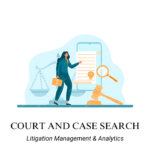Introduction
Meaning
Matter lifecycle tracking is a key functionality within litigation management and analytics tools that involves the systematic management and monitoring of legal cases (matters) from inception through resolution. This functionality ensures that all stages of a legal matter are tracked, including the initiation of the case, ongoing developments, task assignments, document management, and final outcomes. Effective matter lifecycle tracking is essential for ensuring that legal teams can manage their caseloads efficiently, meet deadlines, and maintain comprehensive records of each matter.
Purpose
The purpose of matter lifecycle tracking is to provide legal teams with a structured approach to managing the lifecycle of legal cases. By tracking the progress of each matter, legal professionals can ensure that all necessary tasks are completed on time, relevant documents are organized and accessible, and the overall management of the case is streamlined. This functionality helps legal teams stay organized, reduce the risk of missed deadlines or overlooked details, and enhance the overall effectiveness of case management.
Benefits
- Improved Case Management: Provides a structured and organized approach to managing legal cases, ensuring that all aspects of the matter are tracked and handled efficiently.
- Deadline Adherence: Helps legal teams monitor and meet critical deadlines by tracking task completion and case progress throughout the lifecycle of the matter.
- Enhanced Collaboration: Facilitates collaboration among legal team members by providing a clear overview of tasks, responsibilities, and document organization for each case.
- Comprehensive Documentation: Ensures that all documents related to a matter are organized and accessible, making it easier to retrieve information and maintain accurate records.
- Increased Efficiency: Streamlines the management of legal cases by automating and tracking key tasks and processes, allowing legal teams to focus on substantive legal work.
CHECK MORE: Guide to find best Litigation Management & Analytics Tools for Lawyers
Features
Task Management
Meaning:
Task management is a feature that allows legal teams to create, assign, track, and monitor tasks associated with a specific legal matter. This feature includes tools for setting deadlines, assigning responsibilities, and tracking the completion of tasks throughout the lifecycle of the matter.
Purpose:
The purpose of task management is to ensure that all tasks related to a legal matter are properly assigned, monitored, and completed on time. By providing a clear overview of all tasks, this feature helps legal teams manage their workload more effectively and ensures that nothing is overlooked during the case lifecycle.
Use Cases:
- Case Preparation: A law firm uses task management to assign and track tasks related to case preparation, such as drafting pleadings, collecting evidence, and scheduling witness interviews.
- Deadline Tracking: A legal team uses task management to set and monitor deadlines for various stages of a legal matter, ensuring that all tasks are completed within the required timeframes.
Document Organization
Meaning:
Document organization is a feature that enables the systematic organization and management of all documents related to a legal matter. This includes categorizing, tagging, and storing documents in a centralized location, making it easy to retrieve and reference them as needed.
Purpose:
The purpose of document organization is to ensure that all documents related to a legal matter are stored in an orderly and accessible manner. This feature helps legal teams quickly locate and manage important documents, reducing the time spent searching for information and ensuring that all relevant materials are readily available.
Use Cases:
- Evidence Management: A legal team organizes all evidence related to a case, including contracts, emails, and deposition transcripts, in a centralized document repository, ensuring that all materials are easily accessible.
- Case File Organization: A law firm categorizes and tags documents related to a specific matter, such as court filings and correspondence, making it easy to retrieve and review case files as needed.
Conclusion
This functionality and its features are essential for ensuring that legal cases are managed efficiently and effectively throughout their lifecycle. By leveraging these tools, legal teams can maintain organized and comprehensive records, meet deadlines, and manage their caseloads with greater ease and accuracy.
CHECK OUT LITIGATION MANAGEMENT TOOLS ON DIRECTORY OR CLICK HERE
